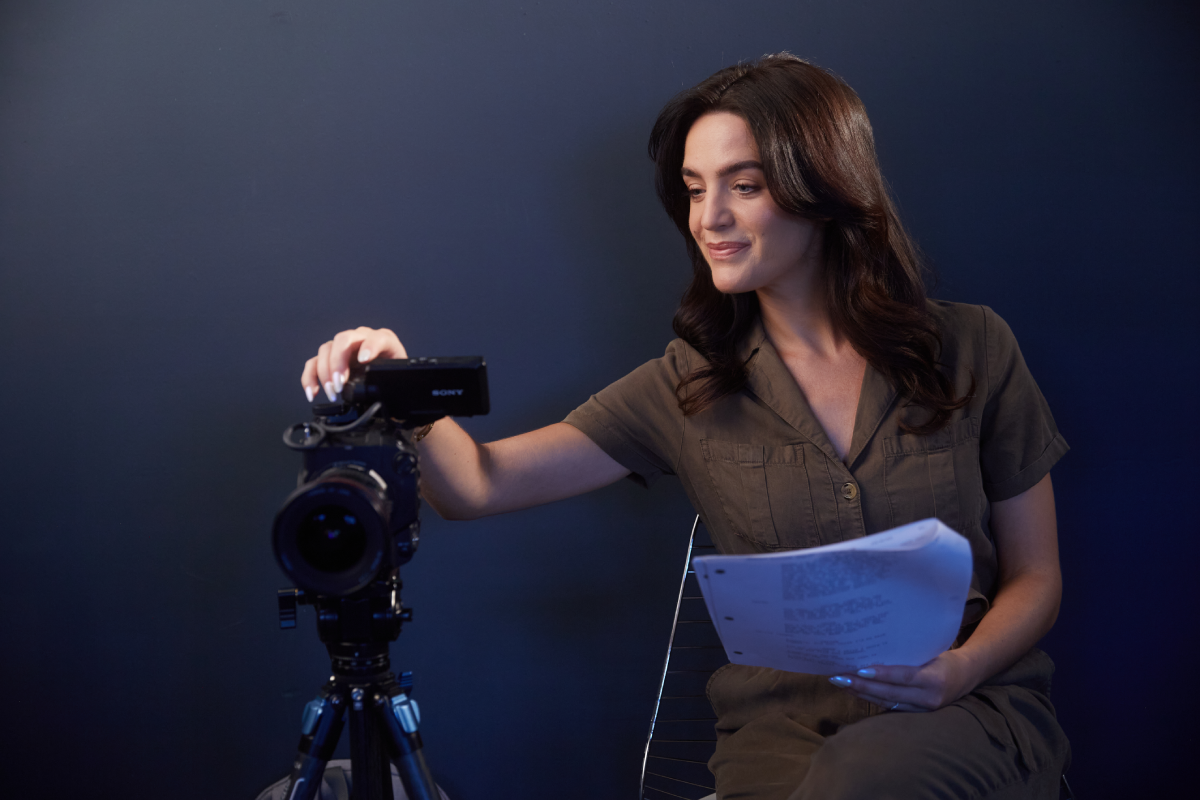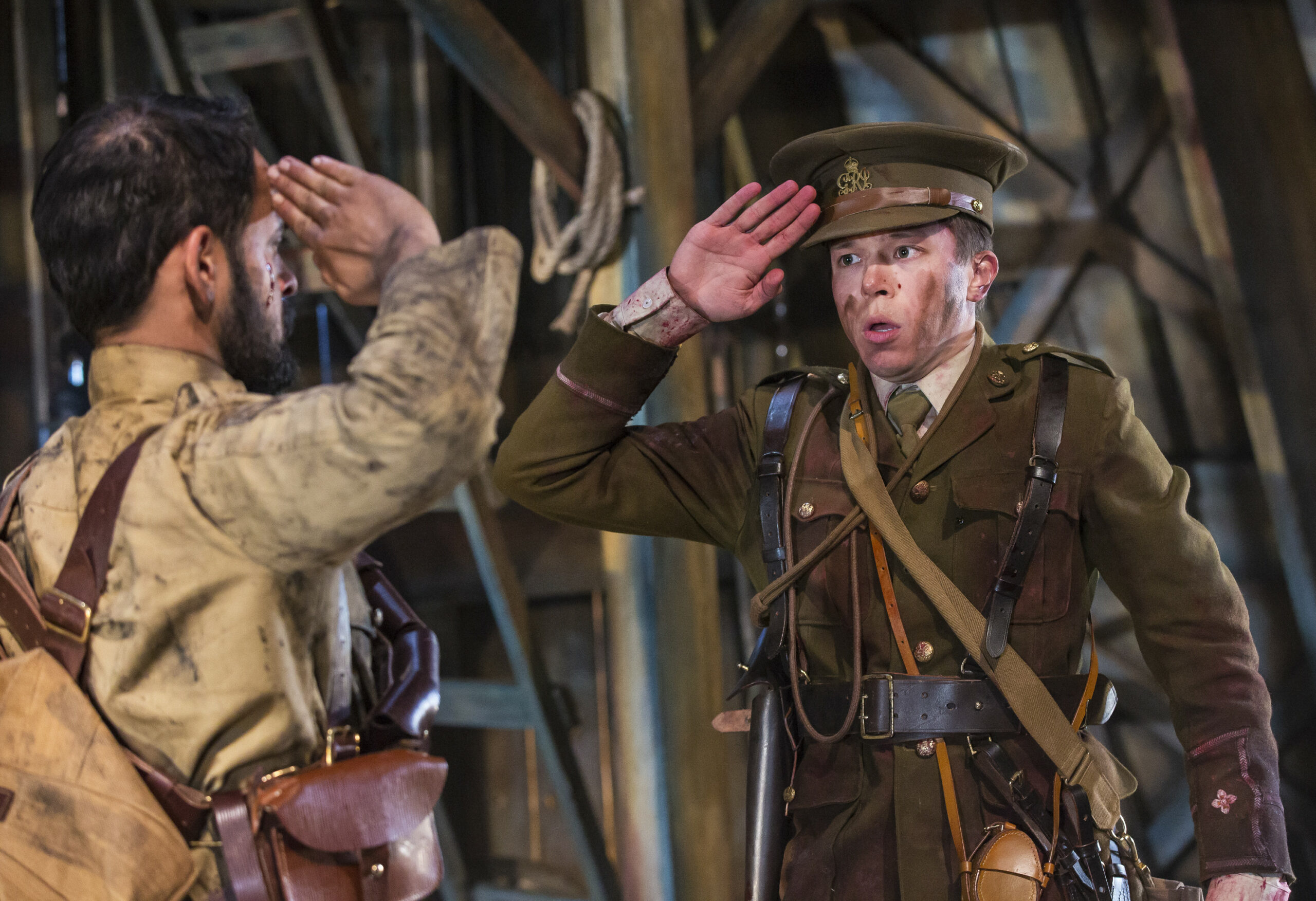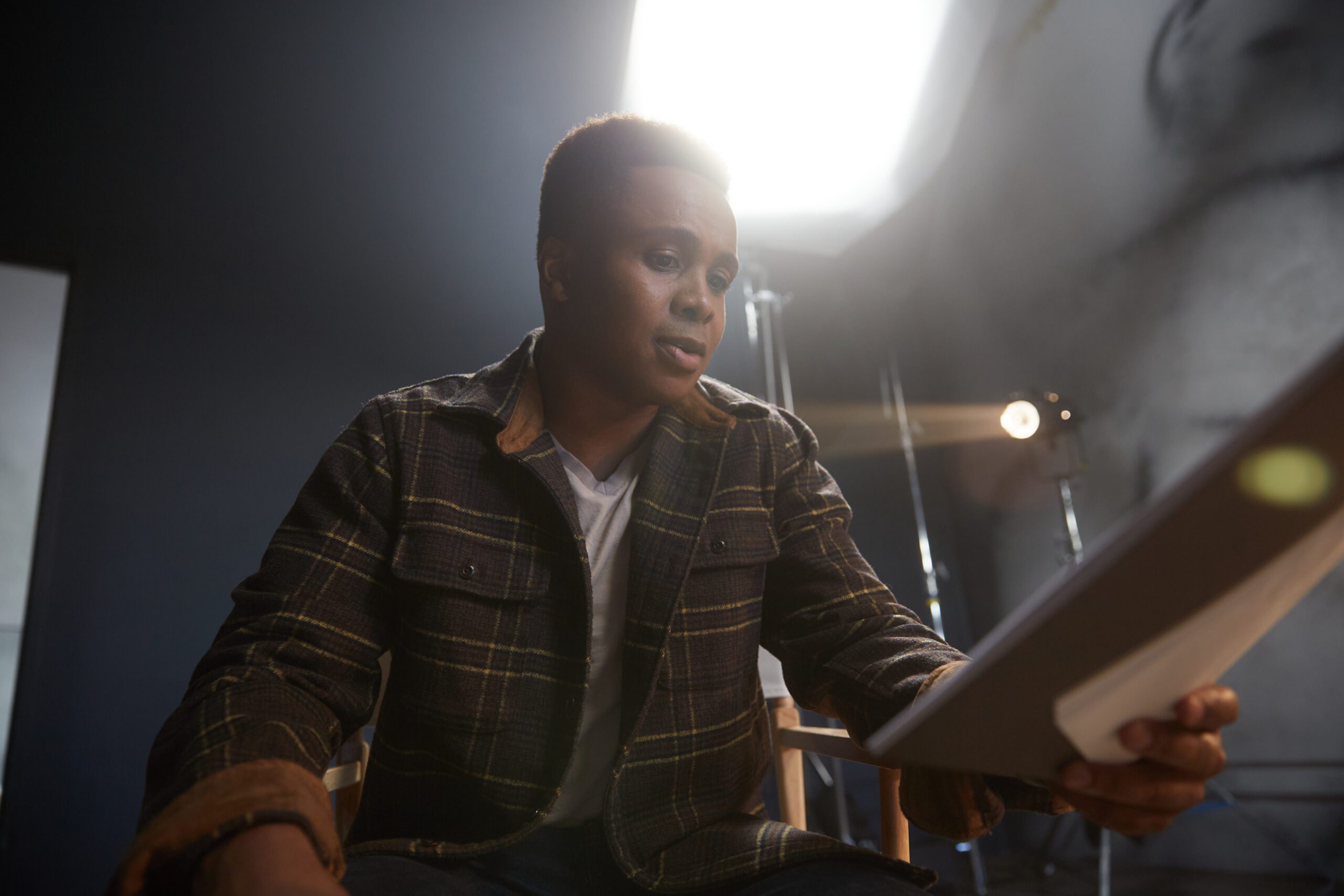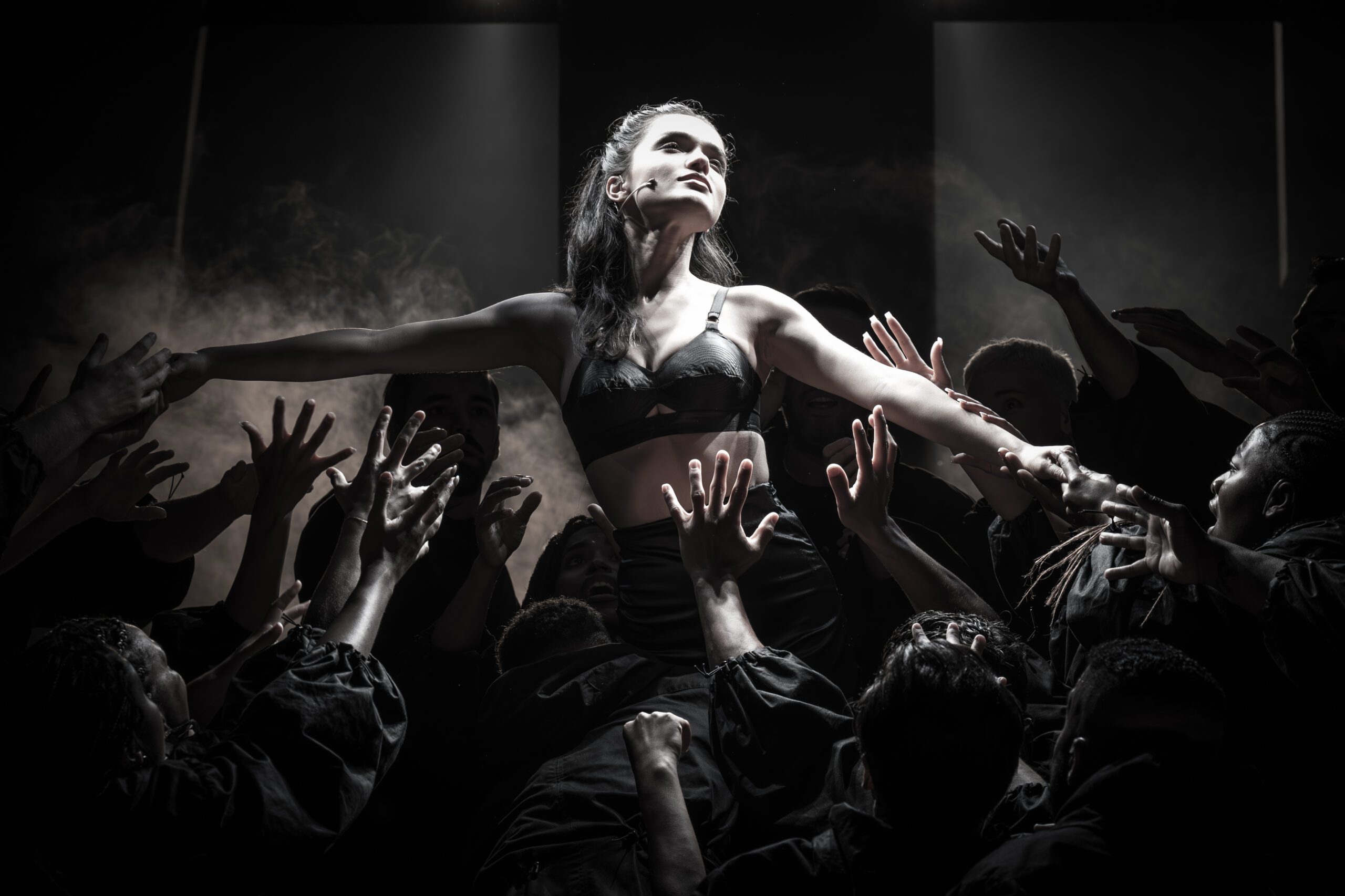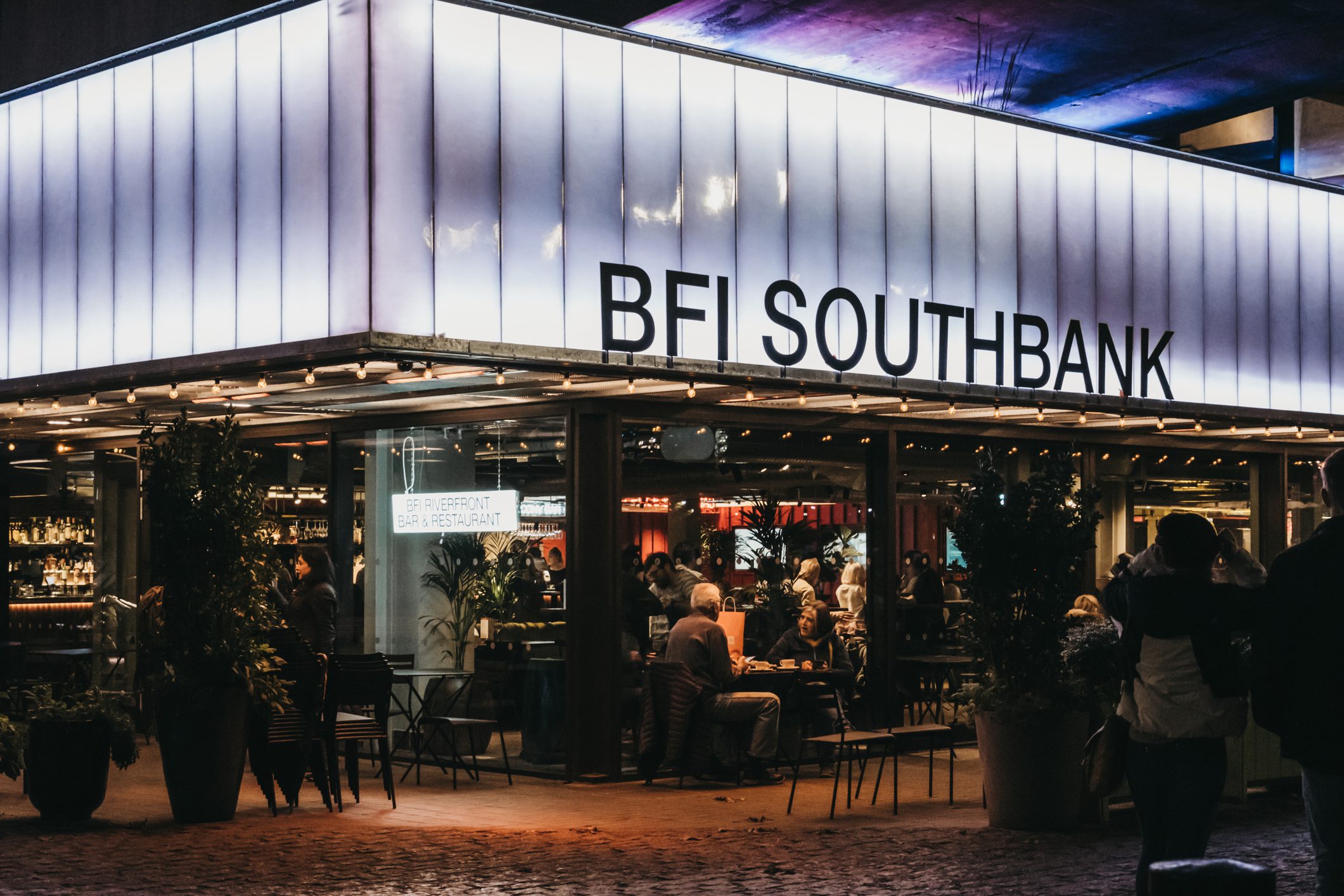In early 2019 I improvised a comedy video in Punjabi. I shot a few angles and cut it together on my phone. I had zero expectations but, inspired by the likes of JusReign and Guz Khan, I was aware that under the right circumstances it might create opportunity. I tapped ‘post’. It went viral.
While the skit itself was very much off the cuff – I was in my dressing gown – I’d been developing the ideas fuelling it for a while. I was frustrated, disheartened by the lack of opportunities for me as an actor to draw from my background.
My white mum grew up in England and my Punjabi dad emigrated to the UK as a child. I grew up speaking Punjabi, spending time in India, and for a long time I never questioned the label assigned to me: ‘half-Indian-half-British’. After all, my ethnicity didn’t seem to add to the challenges of my life; I enjoyed white privilege.
But as I grew older and moved away from family in Leicester to pursue my career in London, I became increasingly aware that my Punjabi-ness was an integral part of my being, something I felt compelled to explore as an artist. But where were the opportunities?
I’ve only ever played one South Asian role: an Indian soldier in BBC Radio 4’s Tommies, my white face safely out of sight. I’ve only ever auditioned for one South Asian role on stage. And when I did get the opportunity to star in WW1 play Wipers, about South Asian soldiers at Ypres, one reviewer saw fit to mention that I embodied an English officer effectively, “despite being half Indian”.
The world we live in seems to suggest that being of mixed heritage is either an exotic addition or an obstacle to overcome; it’s a deviation from perceived normals, never simply a state of being in itself. Similarly, if you can be ‘half’, you can also be ‘not enough’. It was this realisation that led me to create the hashtag #BothNotHalf; an attempt to push back and take control of my identity and narrative as an artist. In early 2020, I was invited to share these ideas at TEDxChandigarh.
Despite efforts in our industry to tell stories that better represent audiences, progress has been slow. A recent research report on diversity in broadcast peak scripted television published by Dr Jami Rogers for Equity is damning. Personally, I’ve come to feel that I’m not the right kind of ‘diverse’. In fact, being white-presenting, I’m not even the right kind of ‘mixed-race’.
In series 5 of Line of Duty, Lisa McQueen was identified as ‘mixed-race’; no-one in AC-12 felt it necessary to clarify what that meant. I recently saw a breakdown for Harry Potter and the Cursed Child, seeking an “actress who is black or mixed-race”. Mixed-race, it seems, has a very singular interpretation. An interpretation that excludes me and countless others.
I also think the term ‘mixed-race’ in itself is problematic. A linguistic hangover of race science, complete with fears of ‘race mixing’. As thinking evolves, so does language: I prefer to think of myself as being of mixed heritage, and of one human race.
Contrary to what our industry seems to suggest, ‘mixed-race’ is not a homogeneous appearance. Mixed heritage is an expansive spectrum and, more than that, our insight as artists comes from our lived experience, not our “funny tinge”. With that in mind, I’m very excited to be working with Spotlight on the ongoing redesign of their database, to improve how mixed heritage performers, and all performers, are represented.
I would encourage all mixed heritage performers to be their own authority on their identity. If you feel inclined, write your stories. And I would encourage the industry as a whole to seek these narratives out.
My journey is not unique. Speak to anyone of mixed heritage and they will tell you how often they feel compelled to choose, or are denied ownership of, one aspect of their identity. When it comes to casting, they will be told they don’t look or sound X enough for a role. Those of us who are white-passing will encounter less guarded casual racism in all-white environments. Bizarrely, a voice breakdown was recently brought to my attention that specified appearance as “white”. What does “white” sound like?
Creative decision-makers need to question whether they are truly seeking to represent reality and society, or are they simply perpetuating stereotypes and systemic racism. Much of this is not conscious prejudice, we simply need to educate ourselves.
Great art is nuance, multiple viewpoints. We connect to universal ideas through specificity, and mixed heritage performers cannot help but bring this subtly to our work. We live it every day. We embody nuance, we cannot be understood in reductive binary terms.
I didn’t bring my English officer in Wipers to life “despite” my heritage, he was fully realised because of my heritage. My knowledge of British Indian history and Punjabi customs allowed me to ground Second Lieutenant Thomas Dixon Wright in reality.
Beyond the eclectic insight we have, mixed heritage people are the fastest-growing demographic in the UK, but where are the roles? I remember watching J.J. Abrams’ Star Trek and being overcome by emotion when Spock declines admission to the Vulcan Academy after his human mother is referred to as a “disadvantage”. I was hit by that same feeling when my first Punjabi comedy skit went viral – I felt seen.
Mixed heritage people and performers are not science fiction. We are real and we take many forms. There is a gap in our industry for stories that recognise this spectrum of existence, both as a central theme and incidentally. A gap I’m hoping to fill with my own work. A gap I hope to see filled by many others.
I would encourage all mixed heritage performers to be their own authority on their identity. If you feel inclined, write your stories. And I would encourage the industry as a whole to seek these narratives out. There is a universal message in our unique experiences: none of us are half anything, all of us are both something.
Watch Jassa’s TEDxChandigarh talk Both Not Half: How Language Shapes Identity
 Jassa Ahluwalia is an actor, writer and filmmaker. He came to prominence in BBC Three series ‘Some Girls’, followed by roles in ‘Ripper Street’, ‘Peaky Blinders’ and ‘Unforgotten’. Theatre credits include Vault Festival 2016’s ‘Pick of the Year’, ‘Skin A Cat’. His award-winning debut short film, ‘Heart’s Ease’, was an official selection at San Diego International Film Festival and London Short Film Festival, and was described by Anthony Horowitz as “an accomplished piece of film-making”.
Jassa Ahluwalia is an actor, writer and filmmaker. He came to prominence in BBC Three series ‘Some Girls’, followed by roles in ‘Ripper Street’, ‘Peaky Blinders’ and ‘Unforgotten’. Theatre credits include Vault Festival 2016’s ‘Pick of the Year’, ‘Skin A Cat’. His award-winning debut short film, ‘Heart’s Ease’, was an official selection at San Diego International Film Festival and London Short Film Festival, and was described by Anthony Horowitz as “an accomplished piece of film-making”.
Jassa is currently developing a TV series with his sister Ramanique Ahluwalia, based on their mixed heritage experiences.
Headshot photography by Ramanique Ahluwalia.
Main image by Pamela Raith Photography.














